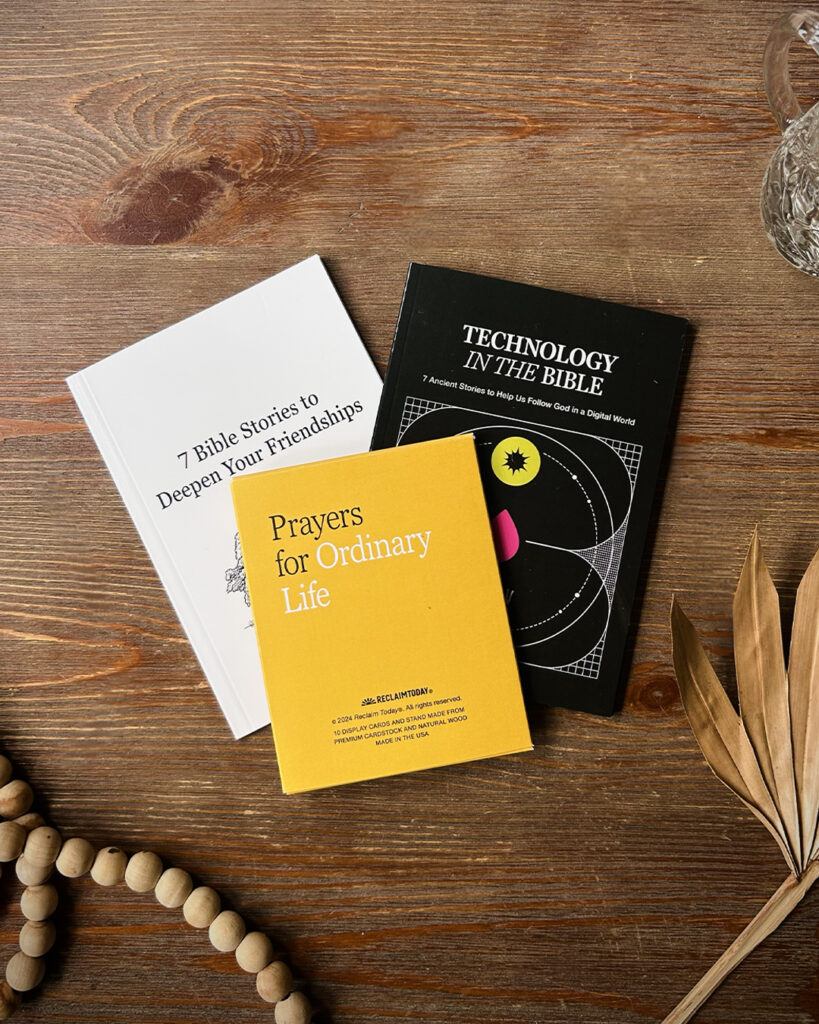When you think about one of your favorite people in the world—maybe a close friend, a parent or grandparent, your partner—how would you describe them in a word? Kind? Patient? Faithful? Stoical? Loving? Funny? Adventurous?
But if you take this seriously, and try to summarize a friend in a word, you’ll find it’s actually pretty hard to do. One word just isn’t enough to capture the nuances and complexities of someone we know deeply.
And if it’s that hard to describe a friend in a word, it would be impossible to summarize who God is in a word. Okay, it is impossible. God doesn’t fit into one language, much less one word. But if we’re going to try, the Hebrew Bible or Old Testament—specifically, the book of Psalms—offers us a great word to use. It’s the word “ḥeseḏ.” In Hebrew, it looks like this…
חֶסֶד (ḥeseḏ)
…and it means “steadfast love, loving-kindness, or unfailing love.”
Way before the book of Psalms was assembled, God used this word to introduce himself to Moses in Exodus. To set the scene, Moses asked God if he could see God’s glory. God basically says, “Your eyes can’t handle it. If you really saw me, you’d die. Here’s another option. You can see my backside.” Let’s hope it was the upper back. (For real though, read it yourself in Exodus 33).
Anyway, God places Moses in a little cave-like structure on a mountain and then passes by so Moses can get a glimpse of him. And then God says, “I am slow to anger and filled with unfailing love (ḥeseḏ) and faithfulness” (Ex. 34:6). Of all the ways God could have described himself, he used this word (along with a few others). Interesting!
Ḥeseḏ also shows up in a bunch more places—over 240 times in the Hebrew Bible or Old Testament. 130 of those instances are in the Psalms. And when you think about the fact that there are only 150 Psalms, that’s a pretty high word-to-Psalm ratio.
Probably the best place to get a picture of what the word means is to read Psalm 136, where it shows up in every single verse. Here’s a taste:
“Give thanks to the Lord, for he is good! His faithful love (ḥeseḏ) endures forever” (v.1).
This Psalm goes on to describe the ways God provides, rescues, and meets his people where they are. And when God does these things, when he provides or rescues, or when he shows an interest in your life, it’s because of his love.
So if that word is so important to the story of the Bible, and if God himself uses it to describe himself—it’s as if God wants to emphasize, “There are a lot of ideas out there about who I am, but at my core, I’m the God of unfailing, faithful, and steadfast love.”
And it’s not just the Hebrew Bible or Old Testament that describes God as “faithful love.” The New Testament picks up on this, too! One instance specifically is when John makes this a primary emphasis of one of his letters:
“Dear friends, let us continue to love one another, for love comes from God. Anyone who loves is a child of God and knows God. But anyone who does not love does not know God, for God is love. God showed how much he loved us by sending his one and only Son into the world so that we might have eternal life through him. This is real love—not that we loved God, but that he loved us and sent his Son as a sacrifice to take away our sins. Dear friends, since God loved us that much, we surely ought to love each other. No one has ever seen God. But if we love each other, God lives in us, and his love is brought to full expression in us. And God has given us his Spirit as proof that we live in him and he in us. Furthermore, we have seen with our own eyes and now testify that the Father sent his Son to be the Savior of the world. All who declare that Jesus is the Son of God have God living in them, and they live in God. We know how much God loves us, and we have put our trust in his love. God is love, and all who live in love live in God, and God lives in them. And as we live in God, our love grows more perfect. So we will not be afraid on the day of judgment, but we can face him with confidence because we live like Jesus here in this world. Such love has no fear, because perfect love expels all fear. If we are afraid, it is for fear of punishment, and this shows that we have not fully experienced his perfect love. We love each other because he loved us first” (1 John 4:7-19, NLT).
Notice he writes, “God is love.” Not “God is loving.” Not “God shows love.” He writes, “God is love.” Love is who he is. Love is how he operates. Love informs what he does. Love is the best we can do at trying to summarize who he is in a word. And God’s love was best expressed through Jesus who laid down his life for his friends. Which, if you’ve looked at those verses recently, is where Jesus defines perfect love. Check it out (hint: John 15:13-17).
So question: When you think about God, is faithful love the first thing that comes to mind? If so, how have you experienced it? If not, what comes to mind instead of faithful love? And if God is best characterized as a God of love, what does this mean for how we should understand topics like “judgment” or “wrath” or the Old Testament stories that make us feel uncomfortable?
Ḥeseḏ is a really important word, and perhaps the most important word to understanding not only the Psalms but who God is. He is a God of faithful love.
Would you like to learn more about God and practice hearing his voice? We’ve got just the thing to help. Click here for a free PDF download of our 8-week journey through the Psalms!


